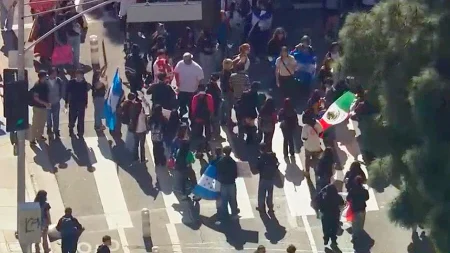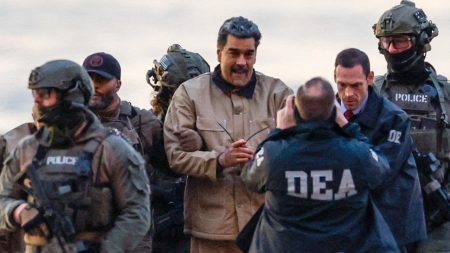Vatican Commission Reveals Ongoing Challenges in Pope Leo’s Battle Against Clerical Abuse
Pope’s Reform Agenda Meets Institutional Resistance as Church Confronts its Darkest Chapter
In a comprehensive assessment that pulls no punches, an independent commission established by the Vatican has released a sobering report detailing the significant obstacles facing Pope Leo in his declared mission to combat clerical abuse within the Catholic Church. The findings, which span more than 200 pages of detailed analysis, paint a picture of institutional inertia and entrenched resistance that continues to hamper meaningful reform despite the pontiff’s public commitments to transparency and accountability.
The report, titled “Confronting the Crisis: Obstacles to Reform in Clerical Abuse Response,” represents perhaps the most candid internal assessment yet of the Church’s ongoing struggles to address what many observers have called its greatest crisis since the Reformation. Compiled by a diverse panel of experts including clergy, legal professionals, psychologists, and survivors of abuse, the document identifies systemic failures across multiple levels of church governance that have allowed abusers to escape proper scrutiny and, in many cases, continue in positions of authority despite credible allegations against them.
“Pope Leo has demonstrated unprecedented willingness to acknowledge the Church’s failures in this area,” noted Dr. Isabella Moretti, a prominent canon law expert who served on the commission. “However, our investigation reveals that his directives for zero tolerance are frequently diluted or obstructed as they move through the ecclesiastical hierarchy. The gap between papal pronouncements and implementation at the diocesan and parish levels remains disturbingly wide.” This implementation gap, the commission argues, stems from a complex interplay of factors including institutional self-protection, theological misunderstandings about forgiveness and redemption, and what one commissioner described as a “culture of clerical exceptionalism” that treats ordained ministers as somehow above ordinary standards of accountability.
Historic Patterns of Concealment Persist Despite New Protocols
Despite the establishment of new protocols for reporting and investigating abuse allegations, the commission found evidence that historical patterns of concealment and minimization continue to undermine Pope Leo’s reform agenda. According to the report, several high-profile cases from the past three years demonstrate that diocesan officials still frequently prioritize protecting the institution’s reputation over transparent handling of allegations. In one particularly troubling example detailed in the report, a European cardinal allegedly circumvented mandatory reporting requirements by transferring an accused priest to a remote mission posting rather than initiating the investigative process mandated by the Vatican’s 2019 guidelines.
“We identified at least twenty-seven cases where documented procedures for handling abuse allegations were either ignored or deliberately circumvented,” said former prosecutor and commission member Judge Raymond Collins. “This suggests that the problem goes beyond mere implementation difficulties and points to active resistance within segments of Church leadership.” The report particularly criticizes the practice of invoking pontifical secrecy—a confidentiality protocol originally designed to protect sensitive Church matters—to shield information about abuse cases from appropriate scrutiny. While Pope Leo formally removed abuse cases from the scope of pontifical secrecy in a 2020 decree, the commission found evidence that the practice continues informally in many jurisdictions.
Further compounding these challenges is what the report describes as “inadequate formation” of clergy regarding professional boundaries and appropriate conduct. Seminary training programs, despite recent revisions, still frequently fail to provide candidates for priesthood with robust psychological screening and comprehensive education about power dynamics, proper ministerial relationships, and the devastating impact of sexual abuse. “Prevention requires more than policies on paper,” noted commission member and psychologist Dr. Maria Fernandez. “It demands fundamental changes in how we select, train, and supervise clergy—changes that many formation programs have been slow to implement despite clear directives from Rome.”
Survivor Testimony Reveals Ongoing Trauma of Institutional Response
Perhaps most damning in the commission’s findings is the testimony of abuse survivors who continue to report secondary trauma inflicted by the Church’s response to their disclosures. Through interviews with more than one hundred survivors across six continents, the commission documented patterns of institutional response that frequently compound rather than alleviate the harm caused by the original abuse. Survivors consistently reported encounters with Church officials characterized by skepticism, minimization, pressure to maintain silence, and excessive focus on protecting the Church from scandal or financial liability.
“What emerges from these testimonies is deeply troubling,” said survivor advocate and commission member Thomas Reilly. “Many victims describe their interactions with Church authorities as more traumatic than the original abuse itself—a devastating indictment of an institution whose founder explicitly warned against harming the vulnerable.” The report details multiple instances where survivors faced implied or explicit threats of ostracism from their faith communities, questions about their own culpability, and pressure to accept inadequate settlements with confidentiality clauses that prevent them from sharing their experiences. Particularly problematic is the continued use of non-disclosure agreements, which Pope Leo has publicly criticized but which remain standard practice in many dioceses’ legal responses to abuse claims.
This disconnect between papal rhetoric and institutional practice creates what the report terms a “crisis of credibility” that undermines Pope Leo’s efforts to position himself as a reformer. “When survivors hear papal statements about accountability and healing but experience something entirely different in their interactions with Church representatives, it creates profound disillusionment,” noted theologian and commission member Fr. Thomas Maloney. “The gap between word and deed threatens to render even the most sincere papal initiatives ineffective.” The commission recommends a comprehensive review of how dioceses engage with survivors, including the establishment of truly independent review boards with decision-making authority rather than merely advisory capacity.
Financial and Legal Considerations Complicate Reform Efforts
Adding another layer of complexity to the Church’s response are the financial and legal implications of addressing clerical abuse comprehensively. The commission’s analysis of settlement data and legal strategies employed by dioceses worldwide revealed disturbing patterns of institutional self-protection that often prioritize financial considerations over justice for victims. In multiple jurisdictions, Church entities have lobbied against extensions of statutes of limitations for abuse cases while simultaneously employing aggressive legal tactics to dismiss claims based on technicalities rather than substantive merit.
“The financial dimension cannot be ignored,” acknowledged economist and commission member Dr. Roberto Vazquez. “The Church faces legitimate concerns about institutional viability given the scale of potential liability. However, our analysis suggests that the defensive legal posture adopted by many dioceses ultimately costs more—both financially and in terms of moral credibility—than would a proactive approach focused on justice and healing.” The report cites several dioceses that have pursued bankruptcy protection primarily as a strategy to limit compensation to victims rather than as a genuine financial necessity, noting that such approaches fundamentally contradict Pope Leo’s expressed commitment to placing victims’ needs at the center of the Church’s response.
The commission recommends a comprehensive review of the Church’s approach to financial settlements, including the establishment of victim compensation funds with transparent criteria and independent administration. “Justice requires not only acknowledgment of wrongdoing but material reparation,” the report states. “However, the current patchwork approach—where compensation varies dramatically based on factors unrelated to the harm suffered—fails to meet basic standards of equity and often leaves survivors feeling that their suffering has been arbitrarily valued.” The report suggests that a more standardized approach, while still allowing for individual circumstances, would better reflect the universal nature of the Church and its moral obligations to those harmed under its care.
Path Forward Requires Structural Reform and Cultural Transformation
In its concluding section, the commission outlines a roadmap for meaningful reform that acknowledges both the positive steps taken under Pope Leo’s leadership and the substantial work that remains. Central to these recommendations is a fundamental restructuring of accountability mechanisms to reduce dependence on the very hierarchical structures that have frequently enabled abuse and its concealment. “True accountability cannot exist in a system where those responsible for oversight are investigating themselves,” the report states, recommending instead the creation of truly independent supervisory bodies with representation from lay experts and survivor advocates.
The commission particularly emphasized the need for cultural transformation alongside policy changes. “Written protocols, while necessary, are insufficient without corresponding changes in institutional culture,” noted cultural anthropologist and commission member Dr. Elena Navarro. “Our investigation revealed persistent attitudes among some clergy and Church administrators that fundamentally undermine accountability—from clericalism that places priests above criticism to theological distortions that confuse forgiveness with avoidance of consequences.” Breaking these cultural patterns, the report suggests, requires not only clear directives from Pope Leo but sustained education at every level of Church structure and concrete consequences for leaders who fail to implement reforms faithfully.
Perhaps most significantly, the commission calls for a more substantive role for the laity—particularly women—in Church governance related to safeguarding. “The evidence we gathered strongly suggests that dioceses with robust lay involvement in oversight functions typically demonstrate better compliance with abuse prevention protocols and more appropriate responses when allegations arise,” the report notes. This finding challenges traditional governance models but aligns with Pope Leo’s stated commitment to synodality and greater lay participation in Church functions.
As the Catholic Church continues to grapple with the devastating legacy of clerical abuse, this commission’s unflinching assessment provides both a sobering reminder of the challenges that remain and a potential pathway toward meaningful reform. Whether Pope Leo can overcome the institutional resistance documented so thoroughly in this report remains perhaps the defining question of his pontificate—and a matter of urgent concern for abuse survivors and Catholics worldwide who long for a Church that truly protects the vulnerable rather than those who harm them.










